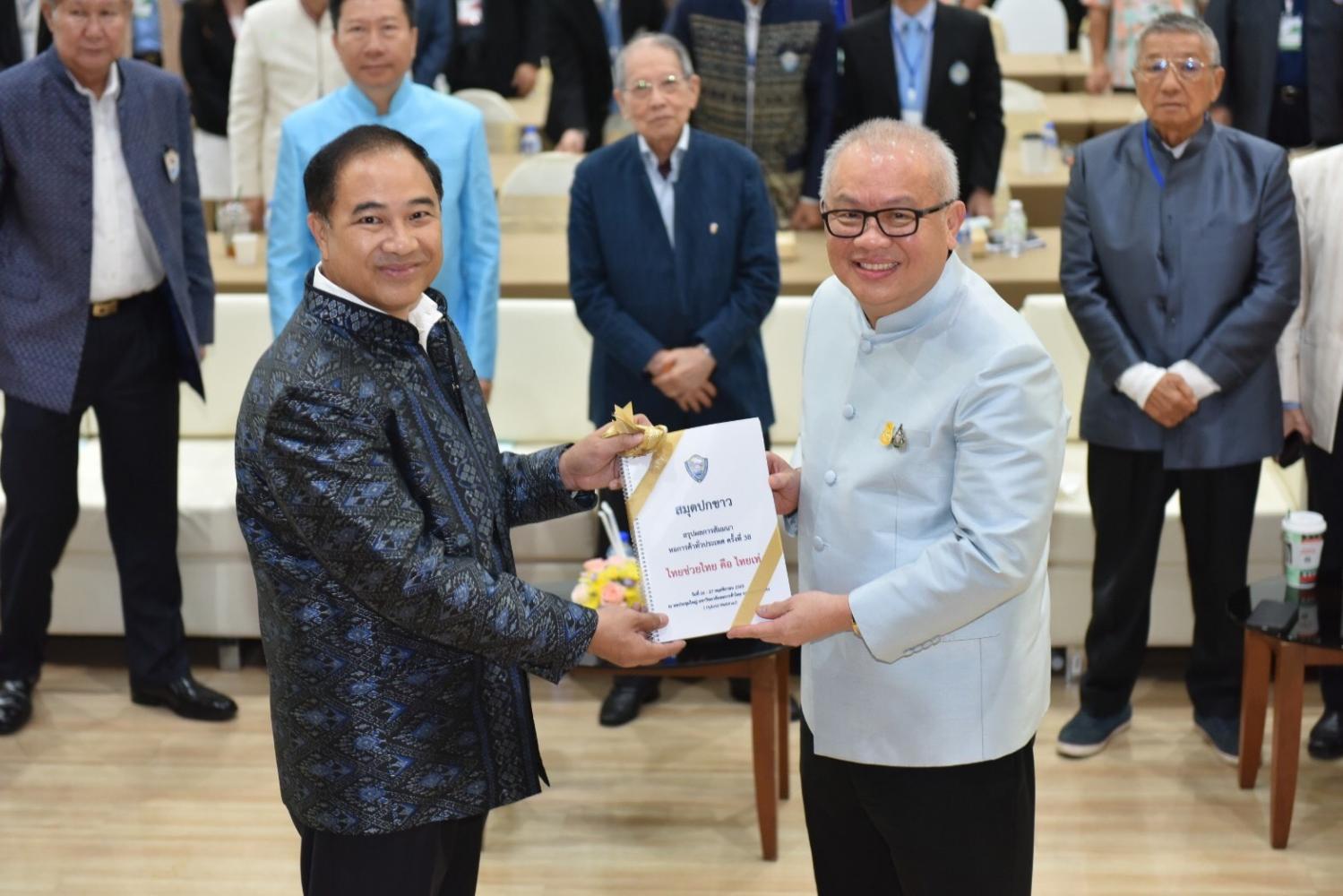
The government looks set to restructure the economy next year to attract foreign investors in new industries and establish a central e-commerce platform to boost online sales nationwide.
Speaking at the 38th annual meeting of the Thai Chamber of Commerce on Friday, Deputy Prime Minister Supattanapong Punmeechaow said 2021 will be a transitional year for Thailand to take serious action in restructuring its economy.
"Though the Thai economy is expected to recover to growth of 3-4% next year [from contraction this year], it will still rely on domestic consumption in the year to come," said Mr Supattanapong. "Reforms are essential to facilitate economic recovery."
He said a restructuring plan is expected by the first quarter of 2021, focusing on building up the local economy and attracting foreign direct investment, notably in new industries related to medical services, food, the circular economy, biofuel or clean energy, smart electronics and electric vehicles.
To lure foreign investment and foreign workers, the government is considering amending and improving various conditions, such as tax benefits offered to expatriates working in the state's flagship Eastern Economic Corridor (EEC), said Mr Supattanapong.
Foreign workers employed with companies that invested in the government's 12 targeted industries and are headquartered in EEC provinces (Chachoengsao, Chon Buri and Rayong) are awarded a privilege -- to pay personal income tax of not more than 17%.
He said he has talked with the Finance Ministry and asked it to improve the tax benefits to cover investment in all areas nationwide, not only within the EEC.
Foreigners who are granted work permits in Thailand should also be allowed to work or live in other areas, said Mr Supattanapong.
Such incentives will help encourage more skilled and knowledgeable foreigners to work in Thailand, he said.
Mr Supattanapong said the government is planning to make use of an existing database of Pao Tang application users, comprising individuals and shops that registered for the government's half-half copayment scheme. The goal is to develop the country, he said.
Some 18 million people use the Pao Tang application, and 10 million people and 100,000 shops registered for the co-payment scheme.
Over the next three months, the government wants to develop a new e-commerce platform through a partnership with Krungthai Bank, allowing operators to sell their products, said Mr Supattanapong.
The new platform would function like Lazada and Shopee, but products would be niche and unique, he said, with members of the Thai chamber nationwide encouraged to sell through the new platform.